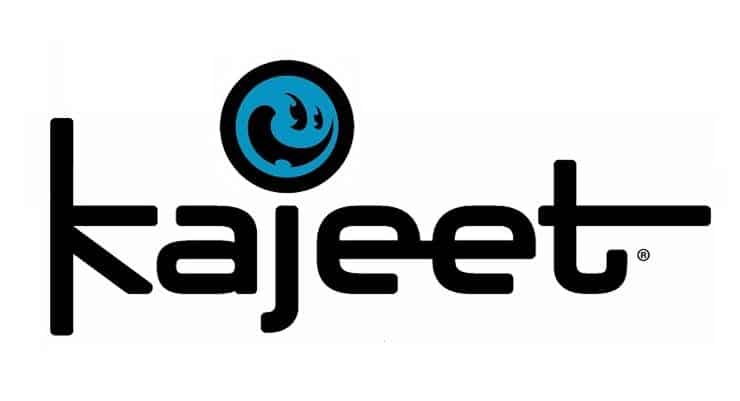Content Bundling is becoming more commonplace than ever as Mobile Network Operators(MNOs) continue rolling out data packages featuring free or discounted access to a wide variety of popular online content such as Facebook, Twitter, Spotify and MNOs’ own offerings such as their OTT TV channels and online gaming applications. While this introduces newer monetization opportunities for MNOs and paves way for their foray into the lucrative digital content business, content bundling also sees these players taking on the competition and risks that abound in verticals which were never part of the telco domain and at the same time, introduces new layers of complexities to their business, which often results in MNOs stretching their existing resources and capabilities to manage the network and the subscriber, while pulling together and packaging a myriad of online content to create their own line of data plans.

Daniel Neal, CEO of Kajeet
It is perhaps the complexities that abound in delivering the right content to the right audience that is today seeing the content game favouring more nimble yet highly specialized players within the telco market. Tara Neal of PCC Mobile Broadband spoke to Daniel Neal, CEO of Kajeet, a Mobile Virtual Network Operator (MVNO) based in the US, on how the increasing dependence on the mobile device for online content and how the highly specialized capabilities to deliver these content as and when and how it is required, is making way to the rise of very innovative mobile services led by MNVOs reinventing traditional services to meet today's continuously changing market needs.
Daniel shared how Kajeet started off as an MVNO back in 2003, bringing to market in 2007 one of the most innovative mobile data service at that time, what Daniel wittily refers to as an ‘extra virgin’ mobile service, given that fact that it is tailored to meet a very targeted market segment with very specific objectives. The market segment – kids aged between 8-14 years – was experiencing rapid growth and parents were seeking plans that provided mobile Internet access, yet had the ability to enforce controls that would protect their children from excessive use of their mobile devices and from exposure to content that is inappropriate or potentially harmful.
Kajeet responded to this demand by creating a product that coupled mobile data access with highly customizable policy controls that allowed parents to determine what, how much and when kids can access Internet on their mobile devices including how they may use services such as the mobile wallet in addition to providing other value added services such as location tracking and web filtering. Kajeet’s product enabled parents to purchase an off-the-shelf service that allowed young children to leverage the power of Internet while providing peace of mind to parents on all aspects of Internet use – device usage, online spending, privacy and safety.
Mobile Education Broadband - A Whole New Idea
According to Daniel, the success of its first product made way for the company’s subsequent endeavour, which saw Kajeet expanding its value proposition in the education segment, an area that is highly complementary to its existing market. As an MVNO, Kajeet was already working with major service providers in the country such as Sprint and Verizon Wireless, and the company saw how bandwidth it was buying from these players can be bundled with access to specially curated digital education content to create a service that will allow schools to provide purpose-specific Internet access for school children.
 According to Daniel, this led to Kajeet’s partnership with Novatel, a provider of intelligent WiFi solutions that saw Kajeet rolling out one of its hallmark services – the ‘Mobile Education Broadband’ branded as the Kajeet SmartSpot, deploying Novatel’s MiFi hotspots. The ‘Mobile Education Broadband’ is a first of its kind service that marries mobile broadband with access to pre-selected educational content and works via connected MiFi hotspot devices that are able to power up to 10 WiFi enabled devices at any one time, and which are managed and controlled centrally via a cloud-based application.
According to Daniel, this led to Kajeet’s partnership with Novatel, a provider of intelligent WiFi solutions that saw Kajeet rolling out one of its hallmark services – the ‘Mobile Education Broadband’ branded as the Kajeet SmartSpot, deploying Novatel’s MiFi hotspots. The ‘Mobile Education Broadband’ is a first of its kind service that marries mobile broadband with access to pre-selected educational content and works via connected MiFi hotspot devices that are able to power up to 10 WiFi enabled devices at any one time, and which are managed and controlled centrally via a cloud-based application.
Daniel said that the service saw Kajeet working with schools across US to provide mobile Internet access to school children both during school and after school hours, with a number of usage and access parameters set as per the schools’ requirement, which among others, ensure that only selected high-quality educational sites are given access to, that the access is available regardless of the users’ location and school breaks/weekends, and that daily time-based controls are put in place to cap the maximum time spent on the Internet. The service, said Daniel, provided a ready solution for schools, especially in places where Internet penetration, including fixed internet, is low and where a relatively large number of households did not have Internet access. It allowed schools to sponsor school children’s access to the Internet, and at the same time ensured that the monies allocated for doing so are spent exclusively on relevant and highly beneficial educational content.
Where Content Leads and Connectivity Follows
What Kajeet has essentially done with its Mobile Education Broadband is position access to curated and pre-selected content as the core offering and tie this up with connectivity to form a complete content centric mobile data service.
 Kajeet’s product allows clients to choose the network they wish to connect to, with the connection going through Kajeet’s cloud platform which then implements the various controls and manages the end users’ usage deploying a wide range of Business Support Systems (BSS) and Policy Control functionalities. This probably marks the beginning of a major shift in the way mobile data service will be packaged in future, with content taking precedence and becoming the denomination by which mobile data plans are designed and sold, with connectivity being relegated as a standard complementary feature.
Kajeet’s product allows clients to choose the network they wish to connect to, with the connection going through Kajeet’s cloud platform which then implements the various controls and manages the end users’ usage deploying a wide range of Business Support Systems (BSS) and Policy Control functionalities. This probably marks the beginning of a major shift in the way mobile data service will be packaged in future, with content taking precedence and becoming the denomination by which mobile data plans are designed and sold, with connectivity being relegated as a standard complementary feature.
More importantly, this shift comes at a time when a large number of traditional sectors such as retail shopping, government, education, health and utilities are moving towards digitalization and becoming increasingly dependent on mobile content to empower employees, serve customers and engage stakeholders, which in turn, creates a strong demand for content centric mobile data services across a wide number of use cases. For example, a large kitchenware chain may provide its sales and design staff with tablets that connect them to their stores nationwide, their warehouse inventory and a number of authorized online sites that allow them to gather all the information they need at their fingertips to serve customer queries and provide consultation and recommendations – for in-store assistance, during design and installation visits and also during any remote communications with customers.
The demand for content centric mobile data services is also evident in the retail market. Kajeet’s Mobile Education Broadband, for example, caters not only for the needs of schools and similar institutions, but also parents who do not mind paying for having someone establish all the policies with regards to online content and overall usage of mobile Internet for their young children and teenagers. The availability of both standard packages where Kajeet pre-configures all the control settings; and custom plans, that allow parents/clients to configure their own parameters, creates a suite of services that are able to fulfil very specific mobile data service requirements across a diverse base of customers, added Daniel.
Content and Complexities
While the concept of providing content first, and bundling connectivity second, seems like a productization idea that is relatively easy-to-implement, successful delivery of such services leverages sound technological capabilities including BSS, and a strong understanding of the segment that is being served.
Each sector and each enterprise has needs that vary vastly from one another and sound understanding of the customers’ content needs, content engagement requirements, intensity of data usage, end user consumption habits and other value added services that may be required to make the service effective, is critical in developing the service and making it work. This extends to include the device needs and the overall service deployment facilitation. For example, instead of the usual MiFi device, Kajeet delivered the mobile education broadband to a school in Ohio using Chromebooks with built-in radio modules that connected to Verizon Wireless’ network. On these type of content centric services, the final packaging depends very much on the needs of the customer, and this is where service providers such as Kajeet, whose expertise has been developed over a decade in meeting specific online content needs of enterprises and organizations, come into play.
Apart from serving its own retail and enterprise customer base under the Kajeet label, Kajeet also lends it expertise and technology solutions to power other MVNOs via Arterra Mobility, a division within Kajeet, extending its role in the MVNO space as a Mobile Virtual Network Enabler (MVNE) and a Mobile Virtual Network Aggregator (MVNA). The former sees Kajeet offering its technology platforms, including OSS and BSS capabilities to manage mobile data services provided by its MVNO clients, while the latter sees Kajeet offering both its technological platform as well as bandwidth to clients via arrangements with large US carriers, namely Verizon Wireless, T-Mobile and Sprint. This allows Kajeet’s MVNO clients to leave the technicalities of service enablement and service control to Kajeet, while they focus on creating brand presence, developing new products and expanding their subscriber base.
Asked on whether serving other MVNOs will conflict with its own value proposition in the MVNO marketplace, Daniel pointed out that the highly specialized nature of its MVNO business that is focused exclusively on the children and teenage market enables the company to carve out a very unique positioning in the marketplace and enables Kajeet to wear all three hats – as an MVNO, MVNE and MVNA – and capitalize on the synergies provided by all three roles to provide a better service to its diverse client base.
Commenting on the MVNO market in general, Daniel said that virtual operators are well poised to take a bigger role in leading service innovations in the mobile broadband space, enabling operators to go beyond just providing data and basic content bundles to creating new services altogether that will cater for very specific use cases, and respond to the needs of existing and emerging market verticals. This coupled with some of the trends Daniel expects within the MVNO space such as the differentiated means of customer acquisition; increasing prevalence of hybrid services, for example, services that bundle Wi-Fi and cellular, or traditional voice and OTTs and the emergence of more sponsored content offering, will be seeing players like Kajeet and MVNOs in general, becoming major catalysts in driving the transformation of telcos into new age digital service providers.




















